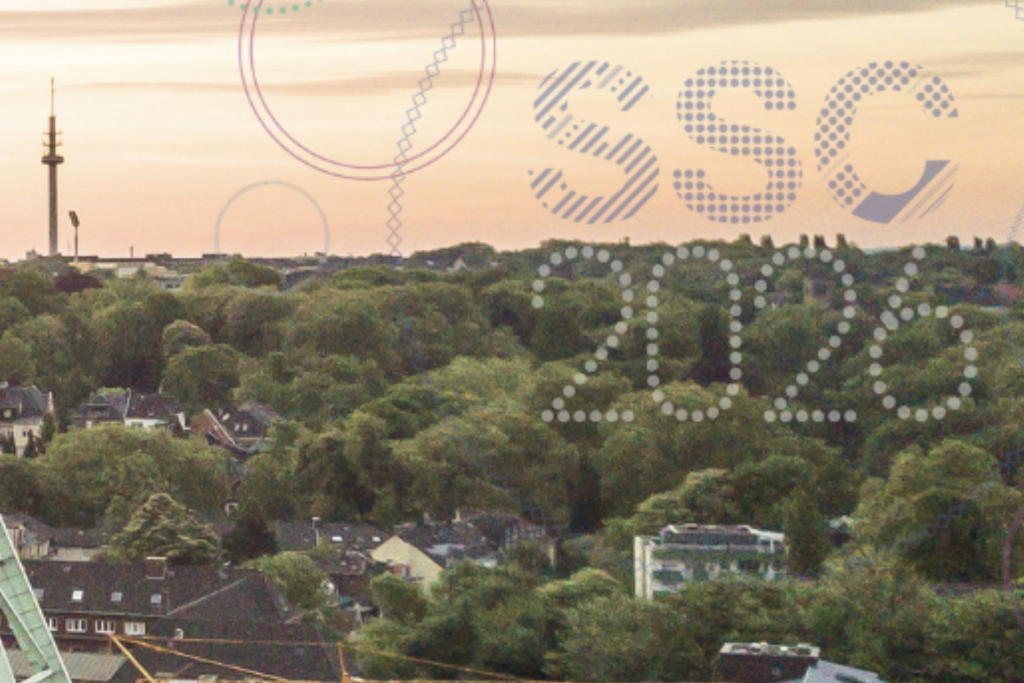SSC2026 | Servitization as a Multilevel Transformation: Business Models, People, Organisations, and Ecosystems
18-20 May 2026
Bochum, Germany
Submission deadline: 11 January 2026
The Spring Servitization Conference (SSC2026) is dedicated to understanding how organisations develop and adapt their business models through servitization and advanced services. The 2026 conference will be held in Bochum, Germany, with the overall theme of ‘Servitization as a Multilevel Transformation: Business Models, People, Organisations, and Ecosystems’. The conference will bring together the world’s leading researchers, practitioners and doctoral students to debate and engage with the theory and practice of servitization.
SSC2026 will comprise the Servitization Doctoral Symposium (Monday 18 May) and the main Spring Servitization Conference (Tuesday 19 and Wednesday 20 May). On Monday 18 May, we will host our doctoral symposium for PhD students whose research focuses on topics related to servitization (including Product-Service Systems, services-centric business models, and service-dominant logic, etc.).
On Tuesday 19 and Wednesday 20 May, we will follow the established format of a single stream where contributors have an opportunity to present to the whole conference audience and engage in both structured and semi-structured panel sessions to discuss their work. The programme is designed to encourage extensive debate and bridge research theory and industrial practice. The conference will also feature keynote addresses from senior executives of leading manufacturing businesses. We will also dedicate some sessions to the early-stage research, which comprises interactive keynotes by leading academics in the field, debates around emergent research themes, and poster reviews of proposed projects and doctoral research. A certificate of attendance will be provided on request after the conference by email to the conference organising team.
Call for Papers
Abstracts are invited on all aspects of servitization, but preferably those related to this year’s theme, Servitization as a Multilevel Transformation: Business Models, People, Organisations, and Ecosystems.
We welcome contributions from practitioners along with empirical studies of product manufacturers, utilities and technology vendors. We invite abstracts from a multitude of academic disciplines, including industrial engineering, marketing, strategic management, operations management, economics, information systems, psychology, work science, and others, to facilitate the interdisciplinary discourse on servitization.
Contributions are especially sought to cover the topics of:
– Service-centric business models and competitive strategies.
– Servitizing in ecosystems, supply chains, value networks, and platforms.
– Organising for servitization and service process design and management.
– Change management and participatory change in the context of servitization.
– Development of individual mindsets, motivation and competences for servitization.
– Territorial Servitization: pathways of servitization strategy adoption for regional and sectoral change.
– Country-specific issues, international comparisons, trade, economic and meta-study analyses of market and social trends in services growth.
– Technologies and capabilities enabling services (e.g. data analytics, digital twins, industrial Internet-of– Things, artificial intelligence and agents, blockchain, platforms, additive manufacturing).
– Human factors in service design and delivery.
– Systemic and ecosystem theory of servitization (e.g. service-dominant logic).
– Services marketing, solution selling, value-based selling, pricing and revenue models.
– Services finance, risk management of services, and legal contracts.
– Engineering, innovation and design aspects of advanced services and servitization.
Abstract Guidelines & Submission
The Spring Servitization Conference is highly selective. Only papers of the highest quality will be chosen for presentation to the full audience.
Therefore, this year we follow the previous year’s process to ensure that contributors get early guidance on the suitability of their contribution and how quality can be enhanced.
Please submit an extended abstract of 1,000 words (including any figures, tables and references), using the below template, via the conference website (submissions will open at the end of November). Please ensure your extended abstract comprises the following eight sections:
– Title
– Keywords
– Introduction
– Theoretical Background/Literature Review
– Research Methodology
– Findings (actual / expected)
– Theoretical and Practical Contributions
– References (e.g. Harvard style)
Review Process
The extended abstracts will undergo a peer-review process against the following criteria:
– Topic suitability to the conference
– Justification of the purpose
– Appropriate theoretical background
– Robustness of the applied research methodology
– Alignment between the findings/discussion and the objectives/research questions
– Relevance of contributions to theory and practice
The reviewing committee will invite successful authors to develop their extended abstract into a two-page executive summary for publishing in the conference proceedings. We will no longer be publishing proceedings with full papers, allowing authors greater flexibility to further develop their work for full journal submissions. Advanced Research contributions will be invited to the main stage whilst Evolving Research contributions will be invited to discuss their research during the research poster sessions.
More info (full call for papers) here.


